Somerset photographers document their lockdown experience
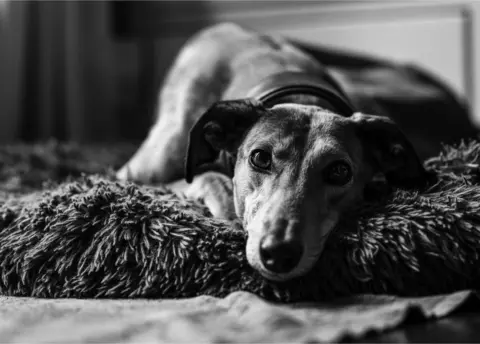 Joao Diniz Sanches
Joao Diniz SanchesHow a broken dog helped to heal an anxious family in lockdown is one of the many personal stories told in a photography exhibition documenting the pandemic.
The image of the dog appears in an exhibition by Frome Wessex Camera Club as one of 122 photographs taken by 22 members showing what the pandemic has meant to them.
Joao Sanches said: "Like many, we welcomed a 'lockdown dog' into our family - for us, to help our youngest who struggles with anxiety.
"Our rescue arrived a little broken herself yet, through gentle care, has blossomed into the companion we had hoped for".
Photographers in Frome, Somerset were given the brief of 'closing down and opening up' and asked to think differently, using a collection of images to tell a story.
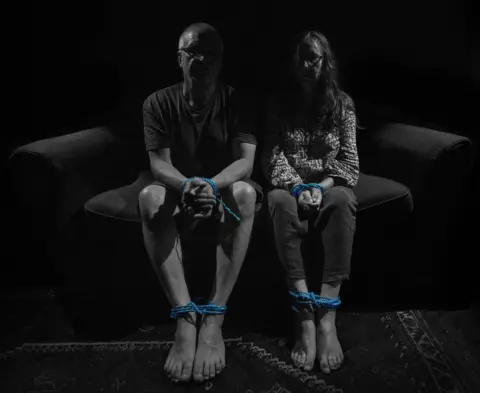 Steve Climpson
Steve ClimpsonOrganiser Mick Yates said: "The pandemic hit people in all kinds of ways and I've been gratified how people rose to the challenge."
"The project has given everyone a personal voice as to how people responded to the pandemic."
Photographer Steve Climpson said: "As I'm very immunocompromised I was very wary of other people and took, and still take, no chances.
"I was a professional photographer for 30 years and my entire life has revolved around making pictures.
"I really felt it was important to treat this subject seriously. For a great many people it was time of horror, isolation and anxiety."
Mr Climpson said that for him to produce a pretty picture was "disrespectful to all the victims. The images are designed to be disturbing".
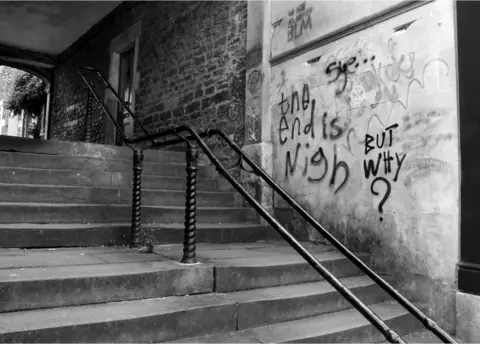 John Bishop
John Bishop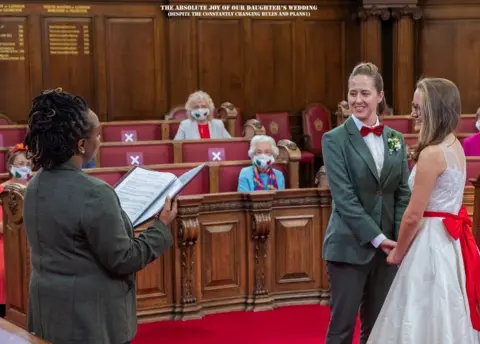 Alan Denison
Alan DenisonAlan Denison found that "photography has made me much more observant of 'things' around me, resulting in a greater appreciation of, and pleasure in, those things.
"The pandemic is a timely warning that our society is more fragile that we thought, and that we don't prioritise enough the need to care for our society, our people or our environment.
"[Taking photographs] has also very often resulted in chance conversations with strangers, whom I would never have met otherwise, both pleasurable in itself and often resulting in information on unusual things to see/photograph in those areas."
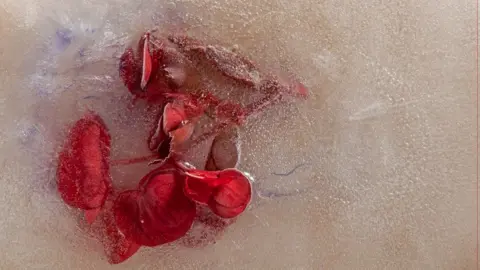 Bill Aven
Bill Aven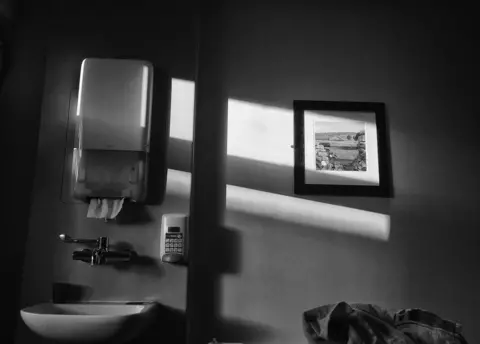 David Chedgy
David ChedgyDavid Chedgy was given permission to document staff at the Royal United Hospitals Waterhouse Ward while he was being treated for Covid.
He said: I'm very fortunate to have survived Covid-19. It's emphasised to me to spend far more quality time with my family and friends and to not take life for granted.
"To document people and places, photography is second nature to me, I absolutely love it."
"I wish to thank all the staff at the RUH who provided me with such dedicated and magnificent care," Mr Chedgy added.
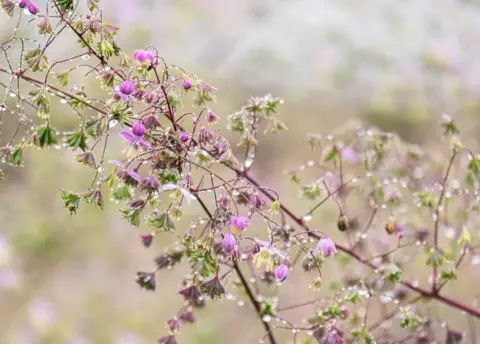 Loveday Powell
Loveday Powell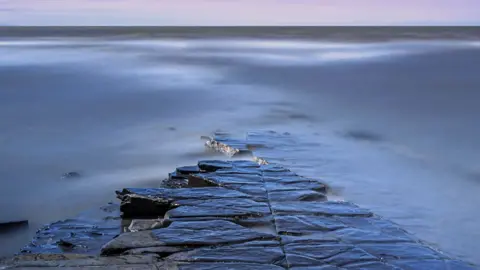 Mary Maynard
Mary MaynardMary Maynard said before the project she did not realise she had been shooting more dawn and long exposure situations during lockdown.
She said: "I suddenly realised that the methodical and slow, long exposure photographic process was intense and yet calming. And that experiencing dawn, as a time of awakening and fleeting beauty, can elicit personal strength and thankfulness.
"I've learned that I (and others) may do things to heal and help without actually realising it and I've learned that photography, for me, is an aide to mental health and stability."
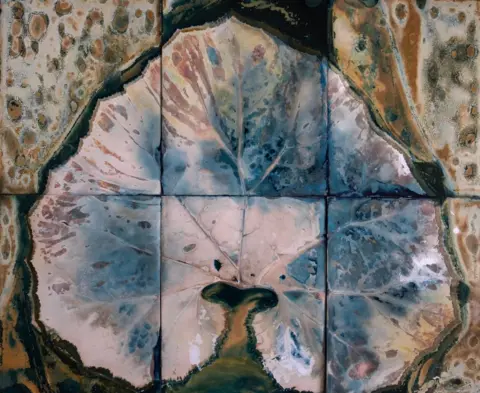 Anjalika Baier
Anjalika Baier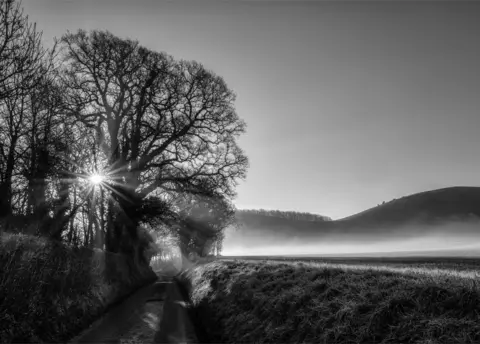 Mick Yates
Mick YatesMr Yates said: "I've always been interested in people and their situations and how people live and so that's my abiding interest.
"I wanted people to challenge themselves in different ways and doing landscape photography was a shift for me."
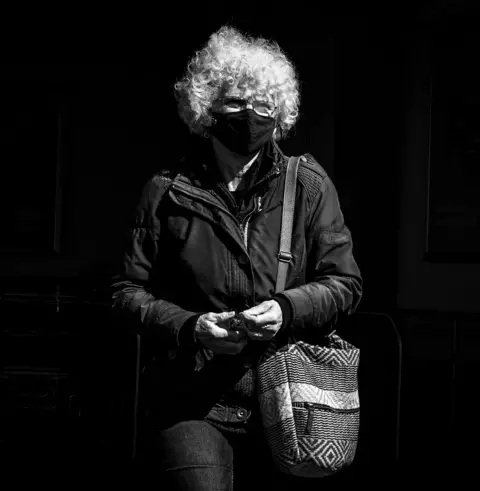 Barry Hill
Barry Hill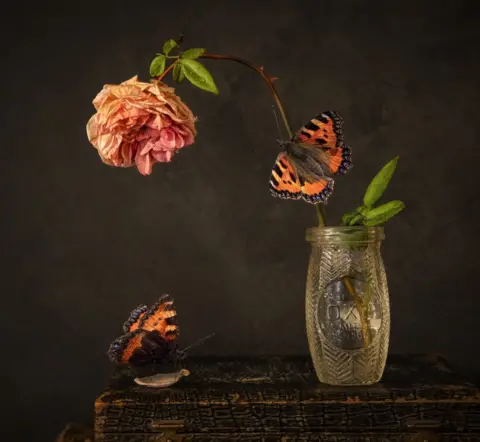 Jane Wiltshire
Jane WiltshireJane Wiltshire said: "More than eight in 10 adults took up a new hobby during lockdown to boost their mental wellbeing.
"I wanted to keep doing photography so decided to try my hand at Still Life."
The show is on at Corsley Reading Room until Monday evening.
